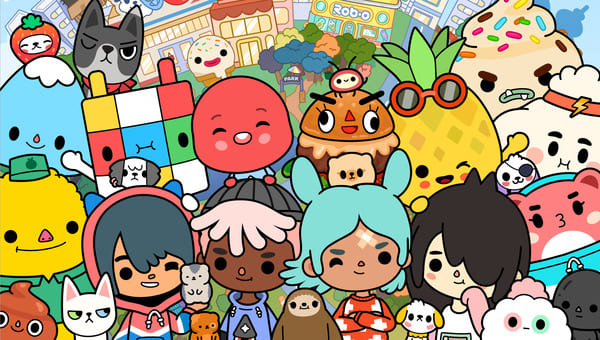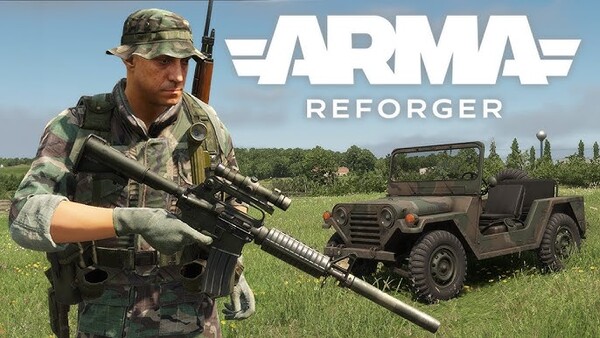Popular Now
Introduction
Since its release in 2022, Overwatch 2 has quickly become a mainstay in the world of competitive team-based shooters. While its dynamic gameplay and colorful characters have attracted millions of players, one issue continues to dominate player discussions: matchmaking. From uneven skill disparities to long queue times, players have been vocal about the frustrations that come with the matchmaking system. In this article, we will dive deeply into the matchmaking problems that plague Overwatch 2, examining its historical context, the impact on the player experience, and potential solutions.
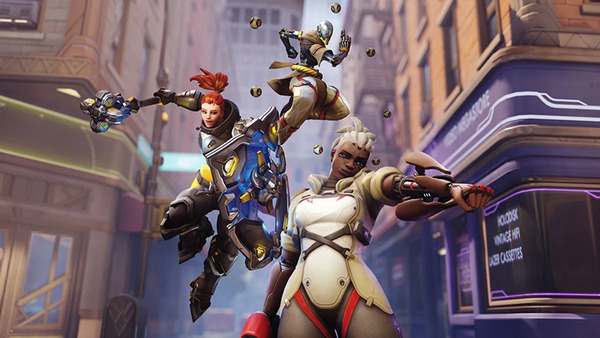
1. The Evolution of Overwatch 2 Matchmaking: From Beta to Full Release
The release of Overwatch 2 in October 2022 was met with excitement and anticipation. One of the game's most talked-about features was the revamped matchmaking system. However, the community quickly began to realize that the issues of Overwatch 1 had not been fully addressed, and in some cases, they had worsened. This section will explore the evolution of the matchmaking system, starting from its beta phase to the current iteration.
The Overwatch 2 beta introduced a new ranking system designed to offer players more accurate matches based on their performance. However, it was soon clear that the matchmaking system struggled to deliver the promised improvements. Players were faced with large skill discrepancies within matches, leading to frustration. Despite various tweaks and updates, the core issues persisted at launch. Over time, Blizzard would release patches intended to improve the system, but the results were mixed.
2. The Impact of the Role Queue System
One of the biggest changes to the Overwatch 2 matchmaking system was the introduction of the Role Queue. Players were now required to select a specific role (Tank, Damage, or Support) before entering a match. While this was meant to provide a more structured and balanced experience, it created new challenges for matchmaking.
The Role Queue system can sometimes result in unbalanced teams, particularly when a specific role is overrepresented in the queue. For example, if too many players queue as Damage heroes, the system might struggle to find suitable Tanks or Supports to balance the teams. This leads to uneven matches, where one team may have a lack of synergy or one player is forced to play a role they are less experienced with. The problem of role imbalance often exacerbates the frustrations of the community.
3. Skill Disparities in Matchmaking
One of the most significant problems within the Overwatch 2 matchmaking system is the existence of skill disparities between players. This can manifest in various ways, including unbalanced matches with one team featuring higher-ranked players and the other being composed of lower-ranked players. This issue is particularly noticeable in ranked play, where players expect to face opponents of similar skill levels.
The matchmaking algorithm struggles to account for the large variety of player skill levels. This leads to situations where players who are highly skilled end up in matches with lower-skilled teammates, creating a toxic atmosphere where communication breaks down and victory seems unattainable. This issue has caused many players to express frustration over their perceived rank, as they feel they are being "carried" by higher-skilled players or forced to carry weaker teammates.
4. Queue Times and Their Impact on Player Experience
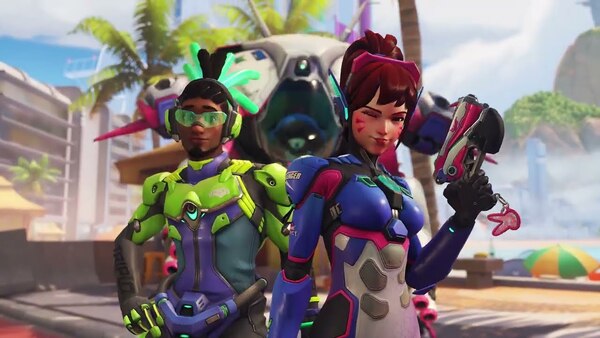
Queue times are another aspect of matchmaking that can negatively impact the player experience in Overwatch 2. Long wait times, especially during off-peak hours, are an issue that frustrates many players. This problem is directly tied to the matchmaking system's need to find balanced teams that meet the criteria for skill, role distribution, and region.
For players who want to play multiple matches in a row, lengthy queues can create a sense of dissatisfaction. This issue is compounded by the frustration of being placed in matches that don't feel competitive or fair, adding to the sense of wasted time. While Blizzard has attempted to address this by introducing a "flexible" role queue system, the results have been mixed at best. Players still report experiencing excessive wait times, particularly in lower-population regions or during off-peak times.
5. The Role of Overwatch 2’s MMR System
The Matchmaking Rating (MMR) system is at the heart of Overwatch 2's matchmaking algorithm. This system tracks the player's performance in matches and attempts to place them against opponents with similar MMR. However, many players have raised concerns about how MMR is calculated and whether it accurately reflects their skill level.
One of the primary complaints about the MMR system is that it can be inconsistent. Players who perform well in matches can find themselves in a match with teammates who have significantly lower MMRs, which often leads to frustration and loss. Conversely, players who perform poorly may be placed in lower-ranked matches that don’t challenge their abilities, which results in a less engaging experience. The imbalance created by these MMR mismatches often leads to frustration and a lack of motivation to continue playing.
6. Toxicity and Tilt: The Psychological Toll of Poor Matchmaking
In addition to the direct gameplay impacts of bad matchmaking, there's also a psychological toll on players. When players are placed in consistently unbalanced matches, they can begin to feel like the system is actively working against them. This leads to increased levels of frustration, tilt, and even toxicity in the community.
Tilt refers to a state of heightened emotional distress caused by losing streaks, unfair matchmaking, or a perceived lack of control. This can cause players to lash out at teammates or opponents, contributing to an overall negative experience. While toxicity in Overwatch has been a long-standing issue, the frustration created by the matchmaking system has exacerbated this problem, driving many players away from the game.
7. Feedback from the Community: How Blizzard Has Responded
Blizzard has been relatively vocal in responding to feedback from the Overwatch 2 community regarding matchmaking issues. Through patch notes and updates, they have acknowledged the concerns surrounding unbalanced matches and long queue times. However, the effectiveness of these responses has been debated.
In some cases, Blizzard has made adjustments to the way skill-based matchmaking works, tweaking the algorithm to better account for player performance. They have also added features like role-specific matchmaking, which attempts to balance roles more effectively. Despite these efforts, many players feel that Blizzard has not gone far enough in addressing the core issues of matchmaking, and complaints continue to flood the game's forums and social media channels.
8. Potential Fixes for the Matchmaking System
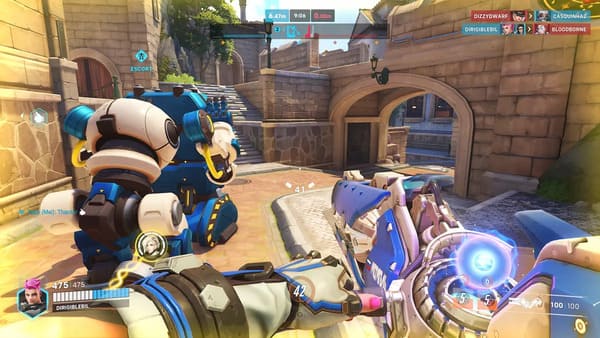
Despite the ongoing issues, there are potential solutions that could significantly improve Overwatch 2's matchmaking system. First and foremost, Blizzard could invest in more robust and accurate skill tracking methods. A system that accounts for a player's individual performance rather than relying solely on wins and losses could provide a more accurate measure of skill, resulting in better matchmaking.
Another possible fix is the introduction of better role-based matchmaking. Currently, the system struggles when one role is overrepresented, which can result in unbalanced games. Implementing a more dynamic role balance system could ensure that matches are more competitive and enjoyable.
9. The Future of Matchmaking in Overwatch 2
Looking forward, the future of matchmaking in Overwatch 2 hinges on Blizzard's willingness to make substantial changes. While smaller adjustments have been made over time, the core issues still persist. The community's feedback will likely be instrumental in shaping how matchmaking evolves in the coming months and years.
Players are hopeful that Blizzard will continue to refine the system to ensure that it rewards skill and creates a more balanced, enjoyable experience for everyone. The introduction of new content, such as heroes and maps, will likely impact the way matchmaking is handled, and developers will need to continue iterating on the system to keep the game fresh and competitive.
10. Conclusion: Is Overwatch 2’s Matchmaking Beyond Repair?
In conclusion, the matchmaking system in Overwatch 2 remains one of the most divisive aspects of the game. While there have been improvements since the game's launch, many players still find themselves frustrated by long queue times, skill disparities, and unbalanced teams. The Role Queue system, though intended to add structure, has introduced new challenges for matchmaking, and the MMR system remains inconsistent at best.
Ultimately, the future of Overwatch 2’s matchmaking system depends on Blizzard’s ability to respond to player feedback and make meaningful changes. With the ongoing support of the community and further development of the game, there is hope that these issues can be resolved. For now, players must continue to grapple with the frustrations of the system while hoping for a better experience in the future.










